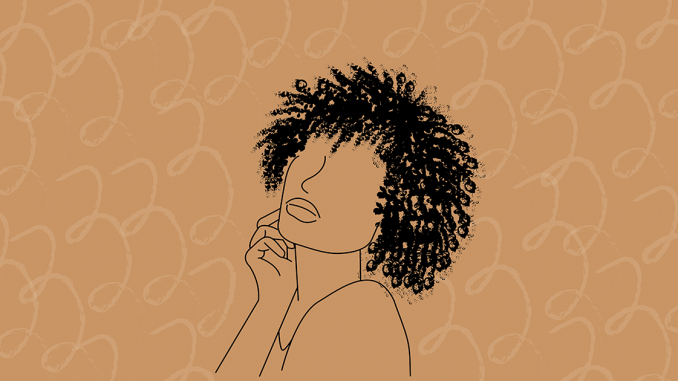
When drunk and fed-up Violet Jones shaves her head in the pivotal scene of “Nappily Ever After,” the fictional character illustrates the experiences of many Black women who embrace their natural hair.
“Nappily Ever After,” which premiered on Netflix this September, explores one woman’s journey through the natural hair movement, which encourages women of African descent to keep their natural Afro-textured hair.
Violet Jones, played by actress Sanaa Lathan, undergoes the “big chop,” which is the process of cutting off chemically treated hair and opting for a natural hairstyle.
Unlike other films that address this movement, “Nappily Ever After,” is performed and directed by women of color and is based off a book written by Trisha R. Thomas, a Black woman.
Shari Thompson, a film and media arts instructor who teaches Race and Ethnicity in American Cinema, said the portrayal of Black women in “Nappily Ever After” was more realistic than past productions like Chris Rock’s 2009 documentary “Good Hair,” in which he interviews Black celebrities and visits hair salons, stylist competitions and an Indian temple to learn about hair culture.
Thompson added that “Nappily Ever After” is a better representation than Spike Lee’s 1988 film “School Daze,” where two groups of women hash out the appearance of their hair, debating between curly or straight hair versus tightly coiled and kinky hair in a musical number called “Good & Bad Hair.”
Thompson said that unlike the films by Spike and Rock, “Nappily Ever After” evoked a different sensitivity because it was directed and performed with a woman’s perspective on struggles of transitioning to natural hair.
Viola Davis taking off her wig and makeup in “How To Get Away With Murder” in 2014 is another portrayal of this emotional experience, Thompson said.
Journalism professor Lori Tharps, the co-author of “Hair Story: Untangling the Roots of Black Hair in America,” said “Nappily Ever After” accurately represented how a Black woman’s hairstyle influences how she is treated and perceived. When Violet Jones wore her hair long and straight, she was treated with respect.
“She was seen, she was appreciated, she was acknowledged when she had that Barbie-doll hair,” Tharps said. “When she didn’t, suddenly she became invisible. She became the Black invisible woman.”
Tharps said the film highlights relevant issues, like restrictions imposed on Black women in the corporate world.
More Black women are employed in management or other similar positions than in the past, but are still less represented than white and non-hispanic women in similar positions, according to a 2016 report by the Women’s Bureau of the United States Department of Labor.
“Content makers, journalists, media makers have to continuously educate the public to show them the truth of what it means to see a Black woman wearing natural hair,” Tharps said. “It’s not dangerous, antithetical to progress or professionalism or educational excellence.
Lathan, the movie’s lead actress, echoed this in an interview with CNN in September.
“Beauty obviously plays into self-esteem and self-worth,” Lathan said. “As Black women in this culture…we’ve been told that our hair is not beautiful because it does not look like the European standard, which is long and straight.”
Tharps said the goal is not that everyone must wear their natural hair, but that people should be able to wear whatever they want.
“We should stop policing women about their hair,” she added.
India Green, a junior media studies and production major and president of Campus Curlz, a natural hair and service-based student organization, said the film resonated with her.
“Although I didn’t do the ‘big chop,’ I did begin to look more into myself and not associate my identity with my hair,” Green said.
Green added that a big aspect missing from the film was education about the movement beyond entertainment.
“I don’t think that every Black woman should be out here promoting natural hair if they don’t feel the need to be natural,” Green said. “It’s not a journey you have to go on. But, if you do want and you do believe in that journey, then I think that it is your duty to encourage other women.”


Be the first to comment